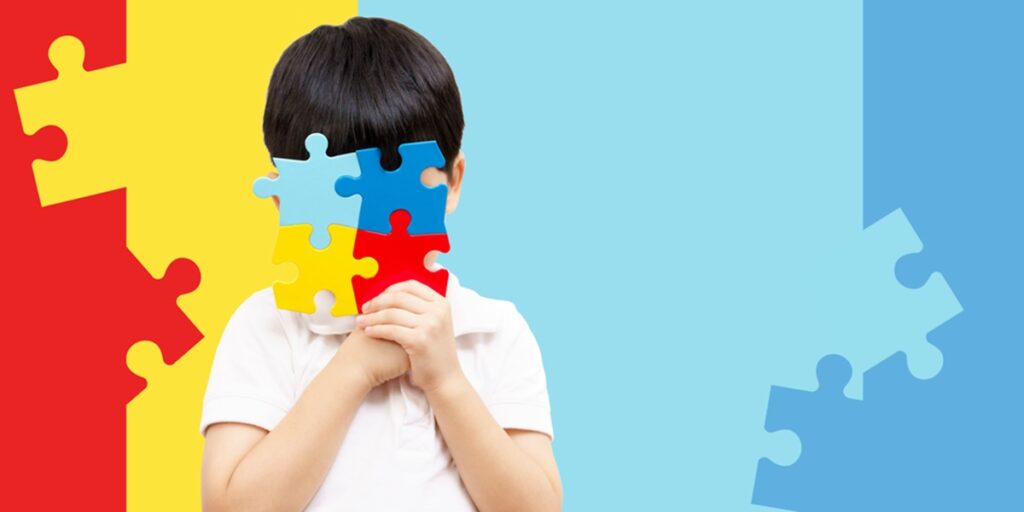
Written by: The Educational Psychologist Team of the Heep Hong Society
For parents, explaining their child’s autism to others can feel like reopening a wound. They fear not only the lack of support from friends and family, but also the potential for misunderstanding or discrimination. So, how should parents approach this with their relatives and friends?
Understanding the causes of autism is crucial. When explaining to friends and family, parents must first clarify that the cause of autism is not related to parental neglect or overindulgence. Autism is associated with abnormal brain development, which affects the child’s communication skills, thinking and behavior patterns, as well as their ability to understand the thoughts and actions of others. Parents can list the common characteristics of most children with autism, including social difficulties, stubbornness, anxiety, communication difficulties, focus ability, varying levels of activity, atypical emotional responses, physical coordination problems, and different sensory responses.

Written by: The Educational Psychologist Team of the Heep Hong Society
For parents, explaining their child’s autism to others can feel like reopening a wound. They fear not only the lack of support from friends and family, but also the potential for misunderstanding or discrimination. So, how should parents approach this with their relatives and friends?
Understanding the causes of autism is crucial. When explaining to friends and family, parents must first clarify that the cause of autism is not related to parental neglect or overindulgence. Autism is associated with abnormal brain development, which affects the child’s communication skills, thinking and behavior patterns, as well as their ability to understand the thoughts and actions of others. Parents can list the common characteristics of most children with autism, including social difficulties, stubbornness, anxiety, communication difficulties, focus ability, varying levels of activity, atypical emotional responses, physical coordination problems, and different sensory responses.

However, explanations are just explanations. When parents face their child’s ever-changing behaviors, they may prefer to remove the child (or even themselves) from sensitive situations to reduce the disturbance to relatives and friends. But this also reduces the child’s opportunities to adapt to society. Instead, parents can actively guide relatives and friends to interact with the child in appropriate ways. For example, they can positively say, “You can speak a little slower”, “The child is very sensitive to sound, let’s speak a little quieter”, or “I’m sorry, can I know the schedule first to prepare my child?” If relatives and friends can do this, it’s already a step towards success.
The perspectives of relatives and friends need to be broadened. However, the most important thing is that parents need to maintain an open and accepting attitude, setting an example for relatives and friends. If the parents themselves accept autism, who else can say “I don’t accept it”?
Address: G/F WING B & C, SAU YUE HOUSE SAU MAU PING ESTATE KOWLOON
Fax: +852 2709 9269